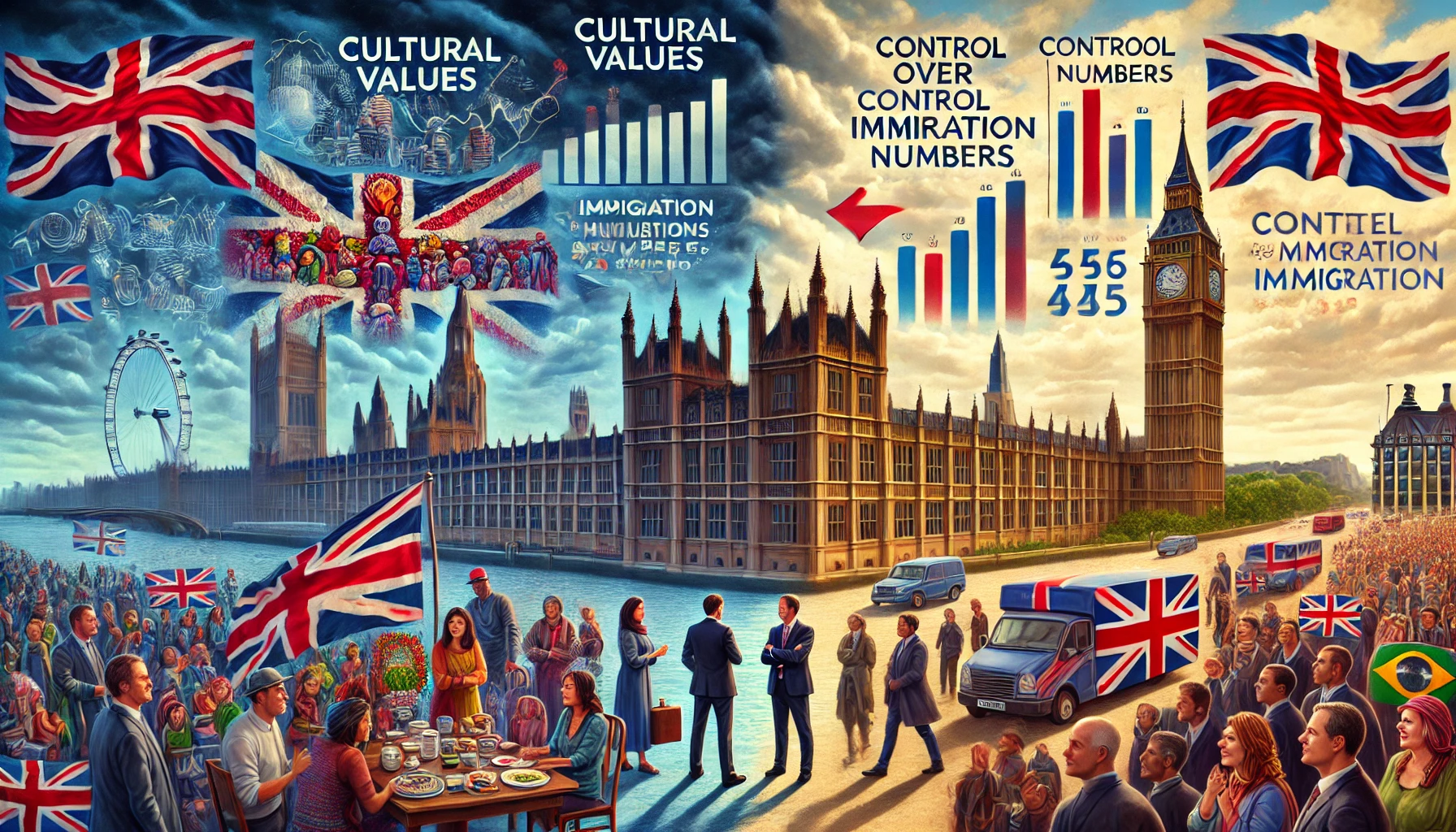In the ever-evolving UK immigration debate, two prominent Conservative figures, Kemi Badenoch and Robert Jenrick, have ignited a fierce discussion about how best to address immigration challenges in the country. As the Conservative Party navigates internal conflicts and a disillusioned electorate, the conversation surrounding immigration has taken center stage, with each leader presenting starkly different approaches to this critical issue.
At the core of the UK immigration debate is a clash between cultural integrity and immigration control. Badenoch’s argument focuses heavily on cultural values, believing that those entering the UK must embrace British principles to ensure social harmony. For her, not all cultural practices are equal, and she draws on personal experiences from her canvassing days, where she encountered communities with strict gender norms that clashed with British ideals of gender equality. She has publicly stated that she is not interested in labeling certain cultures as “less valid,” but rather in ensuring that new immigrants are ready to integrate into British society.

Badenoch’s stance has resonated with some segments of the electorate, particularly those concerned about the social impacts of immigration. Her assertion that the UK should prioritize cultural assimilation over sheer numbers taps into a broader anxiety about preserving national identity amid the influx of migrants. She proposes a structured approach where cultural alignment is key to determining who is allowed into the country, emphasizing that shared values will lead to greater societal cohesion in the long term.
In contrast, Robert Jenrick’s approach to the UK immigration debate focuses more on controlling the number of immigrants entering the country. For Jenrick, the issue is primarily about managing the sheer scale of immigration. He believes that reducing numbers is crucial for alleviating pressures on public services, addressing concerns about overcrowding, and restoring trust in the government. Jenrick has called for a legally-binding immigration cap, which he argues will show the public that the Conservative Party is serious about solving the immigration crisis.
Jenrick’s solution speaks to those who believe that the government has lost control of the situation. He asserts that without strict limits, the party risks further alienating voters who are frustrated by the apparent lack of action on the issue. His pragmatic approach prioritizes tangible results—lower immigration numbers—and sees this as a way to rebuild public trust, especially after the party’s recent electoral defeats.

The UK immigration debate within the Conservative Party mirrors a larger issue playing out across the country. On one side, there are those like Badenoch who emphasize the need for cultural integrity, fearing that uncontrolled immigration could erode British values. On the other side, Jenrick represents those who view the problem through a numerical lens, believing that reducing the overall number of immigrants will alleviate the social and economic pressures associated with high migration levels.
Both positions reflect deeply rooted concerns in the UK about immigration. The country has long grappled with how to balance the need for economic growth with the social challenges posed by migration. The UK immigration debate is not just a political issue; it speaks to the core of British identity and the nation’s future direction. Voters have become increasingly polarized over the issue, with some seeing immigration as an opportunity for cultural enrichment and economic growth, while others view it as a threat to national unity.
As the Conservative Party prepares for its next leadership contest, the outcome of this debate could have far-reaching implications for the party’s future. The leadership candidates, including Badenoch and Jenrick, are attempting to position themselves as the ones who can solve the immigration puzzle while restoring the party’s credibility. However, the UK immigration debate is far from straightforward, and the country remains divided on the best way forward.

What is clear is that immigration will continue to be a defining issue in UK politics for the foreseeable future. The UK immigration debate raises important questions about who is allowed to enter the country, how they integrate into society, and what kind of nation the UK wants to be in the coming decades. Whether the solution lies in cultural assimilation, numerical limits, or a combination of both, remains to be seen. However, the stakes are high, and the decisions made in the coming months will likely shape the UK’s future for years to come.
For more updates visit our website: Reporterun.com








